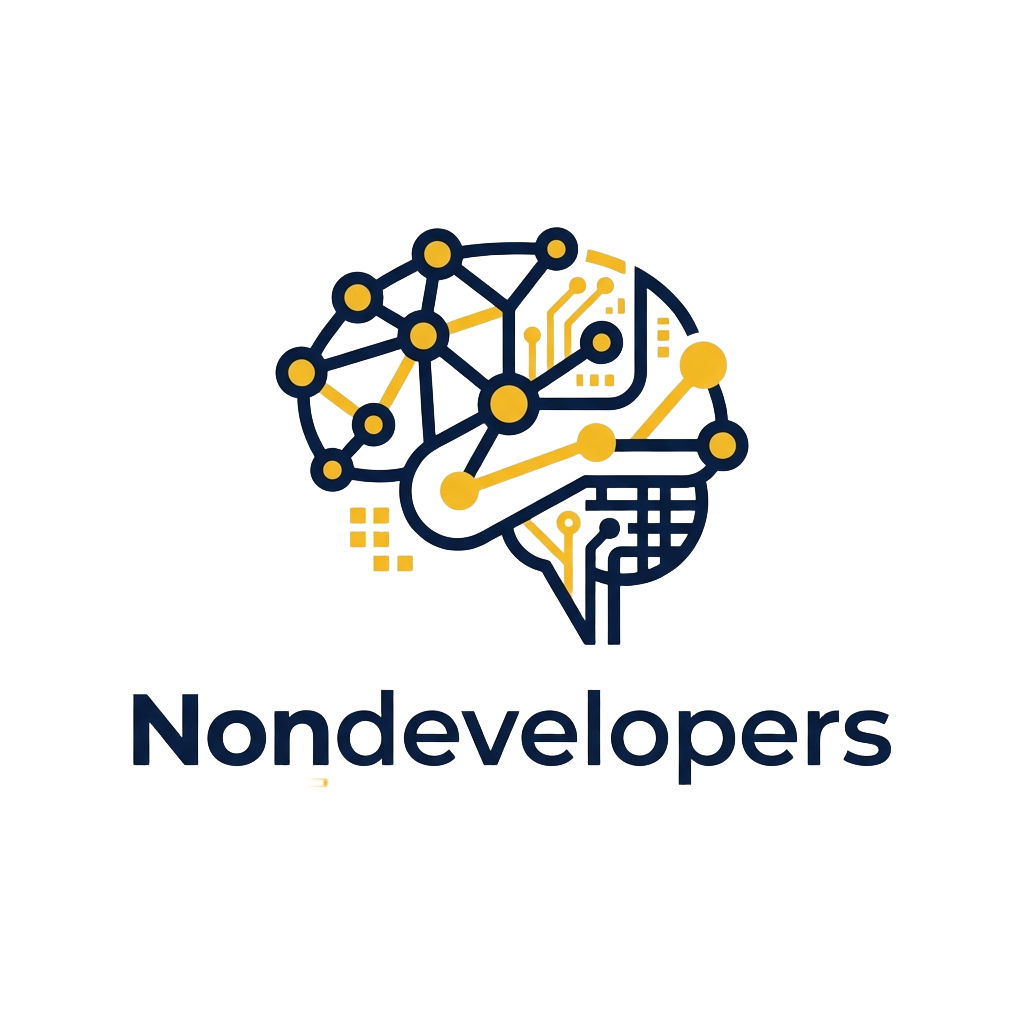Welcome to our beginner's guide to hacking! If you're curious about the world of cybersecurity and want to explore the exciting field of ethical hacking, you've come to the right place. In this article, we'll provide you with valuable insights on where to start your hacking journey and how to kickstart a career in this rapidly growing industry. So, let's dive in and discover the opportunities that await you!
Key Takeaways:
- Starting a career in hacking requires a solid understanding of computer systems and networks.
- Consider pursuing a degree in computer science or information technology, or take online courses and certifications to gain relevant knowledge and skills.
- Hands-on experience through internships, volunteering, or entry-level positions is crucial in the cybersecurity field.
- Showcase your skills and experiences through a tailored resume and cover letter when applying for cybersecurity roles.
- Stay updated with the latest trends and technologies in cybersecurity through continuous learning and networking.
The Step-by-Step Process to Start a Career in Cybersecurity
Starting a career in cybersecurity can be an exciting and rewarding journey. With the increasing demand for cybersecurity professionals, it is essential to have a solid plan and follow a step-by-step process to kickstart your career. Here, we outline the key steps to help you embark on your cybersecurity journey.
Step 1: Gain a Solid Understanding of Computer Systems and Networks
Before diving into the world of cybersecurity, it is important to have a strong foundation in computer systems and networks. You can achieve this by pursuing a degree in computer science or information technology, or by taking online courses and obtaining certifications. Familiarize yourself with concepts such as operating systems, network protocols, and cybersecurity fundamentals.
Step 2: Gain Hands-On Experience
Hands-on experience is crucial in the cybersecurity field. Consider volunteering, seeking internships, or applying for entry-level positions to gain practical experience. This will not only enhance your skills but also provide you with valuable insights into real-world cybersecurity challenges. Showcase your experience on your resume and cover letter to demonstrate your commitment and dedication to the field.
Step 3: Network and Search for Opportunities
Networking plays a significant role in landing a cybersecurity job. Join industry-related events, conferences, and online communities to connect with professionals in the field. Utilize job search platforms and reach out to cybersecurity companies directly to explore opportunities. Stay active on professional networking platforms, such as LinkedIn, to expand your network and stay informed about job openings.
Step 4: Prepare for Interviews and Stay Up-to-Date
When you secure an interview, make sure to thoroughly research the company and the role you are applying for. Familiarize yourself with the latest trends and technologies in cybersecurity and be prepared to showcase your knowledge during the interview. Demonstrating a commitment to continuous learning and staying up-to-date with industry developments will set you apart from other candidates.
By following these steps, you can lay a strong foundation for a successful career in cybersecurity. Remember to continuously enhance your knowledge and skills, stay connected with the cybersecurity community, and embrace opportunities for growth and advancement.
Essential Skills for Ethical Hackers
As ethical hackers, we possess a unique set of skills that enable us to protect systems and networks from cyber threats. To excel in this field, it is essential to have a strong foundation of technical knowledge, programming skills, and an understanding of cyber threats and security principles.
First and foremost, technical knowledge is crucial. We must have a deep understanding of computer systems and networks, including their architecture and protocols. This knowledge allows us to identify vulnerabilities and develop effective security measures. Additionally, proficiency in programming languages such as Python, Java, and C++ enables us to write code, automate tasks, and exploit weaknesses.
It is not enough to simply identify vulnerabilities; we must also possess the skills to fix them. This requires a solid grasp of computer fundamentals and the ability to think analytically and creatively.
Furthermore, to be effective ethical hackers, we must stay up to date with the latest cyber threats and security trends. This includes knowledge of common attack techniques, malware, social engineering tactics, and encryption algorithms. Understanding the motivations and strategies of malicious actors is crucial in anticipating and mitigating potential risks.
In addition to technical expertise, ethical hackers must possess strong problem-solving and attention to detail skills. The ability to analyze complex systems, identify patterns, and think critically is essential in our line of work. Effective communication skills are also crucial, as we often collaborate with teams and need to clearly present and explain our findings and recommendations.
Summary:
- Essential skills for ethical hackers include technical knowledge, programming skills, and an understanding of cyber threats and security principles.
- Technical knowledge encompasses a deep understanding of computer systems, networks, and programming languages.
- Staying up to date with the latest cyber threats and security trends is vital for ethical hackers.
- Problem-solving skills, attention to detail, and effective communication are also essential in this field.
The Importance of Certifications in Ethical Hacking

Ethical hacking is a rapidly growing field that requires a strong foundation of skills and knowledge. One way to demonstrate your expertise and stand out in the job market is by obtaining certifications in ethical hacking. These certifications validate your abilities and showcase your dedication to the field.
When it comes to certifications in ethical hacking, there are several notable options to consider. The CompTIA Security+ certification is a popular choice that covers essential principles for network security. It provides a comprehensive understanding of cybersecurity concepts and technologies.
Another highly regarded certification is the Certified Ethical Hacker (CEH) credential. This certification focuses on thinking and acting like a hacker to identify vulnerabilities in systems. It equips professionals with the skills necessary to ethically penetrate networks and assess security measures.
For those looking to advance their careers in ethical hacking, the Certified Information Systems Security Professional (CISSP) certification is a valuable asset. This certification demonstrates advanced expertise in cybersecurity and is often required for more senior-level positions.
Table: Comparison of Ethical Hacking Certifications
| Certification | Description |
|---|---|
| CompTIA Security+ | Covers essential principles for network security |
| Certified Ethical Hacker (CEH) | Focuses on thinking and acting like a hacker to find vulnerabilities |
| Certified Information Systems Security Professional (CISSP) | Provides advanced expertise in cybersecurity |
| Certified Information Systems Auditor (CISA) | Emphasizes information systems auditing |
| Certified Information Security Manager (CISM) | Focuses on information security management |
In addition to the aforementioned certifications, other notable options include the Certified Information Systems Auditor (CISA) certification, which focuses on information systems auditing, and the Certified Information Security Manager (CISM) certification, which emphasizes information security management.
Obtaining certifications in ethical hacking not only enhances your knowledge and skills but also increases your credibility and marketability in the cybersecurity industry. These certifications can open doors to new opportunities and pave the way for a successful career in ethical hacking.
Learning Ethical Hacking
Before embarking on a journey to become an ethical hacker, it is crucial to grasp the fundamental concepts that lay the foundation for this field. Mastery of these concepts will provide you with a solid understanding of the key elements necessary to succeed in ethical hacking.
Key Concepts in Ethical Hacking
The fundamental concepts of ethical hacking encompass various areas of knowledge, including:
- Basic IT and computer skills
- Programming languages such as Python, Java, and C++
- Computer networking
- Web applications and websites
- Linux operating system
- Cryptography
- Behavioral psychology and social engineering
Developing a solid understanding of these areas will equip you with the necessary skills to delve into the world of ethical hacking.
Quote: "The foundation of ethical hacking lies in a strong grasp of basic IT skills, programming languages, networking, and cybersecurity principles." - Expert Ethical Hacker
Formal education, self-study, certifications, and practical experience all play significant roles in acquiring the essential knowledge needed for ethical hacking. Consider pursuing a degree in computer science or enrolling in online courses to gain a structured understanding of the core concepts. Additionally, certifications like the Certified Ethical Hacker (CEH) can validate your skills and demonstrate your commitment to ethical hacking.
| Concept | Description |
|---|---|
| Basic IT and computer skills | Understanding computer hardware, operating systems, and troubleshooting techniques. |
| Programming languages | Mastery of programming languages such as Python, Java, and C++ to analyze and exploit vulnerabilities. |
| Computer networking | Knowledge of network protocols, routing, and firewall configurations. |
| Web applications and websites | Ability to identify and exploit vulnerabilities in web applications and websites. |
| Linux operating system | Understanding the ins and outs of the Linux operating system, which is commonly used in ethical hacking. |
| Cryptography | Knowledge of cryptographic algorithms and techniques to protect sensitive information. |
| Behavioral psychology and social engineering | Understanding human behavior to exploit social engineering techniques in hacking scenarios. |
By focusing on these fundamental concepts, you will lay a strong foundation for a successful career in ethical hacking.
Best Approach for Beginners to Start Learning Ethical Hacking

When it comes to learning ethical hacking, beginners have a variety of resources and approaches to choose from. Here, we will outline the best approach to help you get started on your journey to becoming an ethical hacker.
First and foremost, online courses and certifications are an excellent way for beginners to gain knowledge in ethical hacking. These resources offer structured learning materials, practical exercises, and assessments to ensure you grasp the fundamental concepts. Some popular online platforms for ethical hacking courses include Udemy, Coursera, and Cybrary.
Alongside online courses, a degree in computer programming or computer science can provide a solid foundation for ethical hacking. A degree program will offer in-depth knowledge of various programming languages, computer networks, and cybersecurity principles. Additionally, participating in hands-on projects and internships during your degree program will give you valuable practical experience.
Continuous learning is crucial in the field of ethical hacking, as technology and cybersecurity practices evolve rapidly. Stay updated with the latest trends and developments by reading books, following cybersecurity blogs, and joining online communities and forums where expert hackers share their knowledge and insights.
Conclusion
As we wrap up, we want to emphasize that a career in ethical hacking offers both excitement and potential for growth. The field of cybersecurity is constantly evolving, and the demand for skilled professionals is on the rise. By starting with entry-level positions and gaining hands-on experience, you can lay a solid foundation for your career.
To advance in the ethical hacking field, continuous learning is crucial. Stay updated with the latest security trends, technologies, and techniques. Networking with fellow professionals and joining relevant communities can provide valuable insights and opportunities for growth.
Remember, a career in ethical hacking is a journey with different stages. It takes time and persistence to progress and secure high-paying positions. Your patience will be rewarded as you advance and become a sought-after ethical hacker.
So, if you have a passion for technology, problem-solving, and protecting systems, consider embarking on a career in ethical hacking. With the right skills, certifications, and dedication to continuous learning, you can forge a rewarding and lucrative path in the world of cybersecurity.
What is the Best Language to Learn for Hacking?
Looking to start learning hacking today? When it comes to choosing the best language, Python is highly recommended. Its simplicity, versatility, and vast library ecosystem make it ideal for hacking purposes. Python's focus on readability will make it easier for beginners to grasp essential concepts while exploring the world of hacking.
FAQ
Where should I start if I want to embark on a hacking journey?
To begin your hacking journey, it is important to gain a solid understanding of computer systems and networks. You can achieve this through a degree in computer science or information technology, or through online courses and certifications. Hands-on experience is invaluable, so consider volunteering, internships, or entry-level positions in cybersecurity.
What is the step-by-step process to start a career in cybersecurity?
Starting a career in cybersecurity involves gaining technical expertise and relevant skills. Begin by gaining a strong understanding of computer systems and networks. Consider obtaining a degree or taking online courses and certifications. Gain hands-on experience through volunteering, internships, or entry-level positions. Tailor your resume and cover letter to highlight relevant skills. Utilize job search platforms and networking events to find opportunities. Continuously learn and stay updated with the latest trends and technologies in cybersecurity.
What are the essential skills for ethical hackers?
Ethical hackers require technical knowledge of computer systems, networks, and programming languages such as Python, Java, and C++. They also need an understanding of cyber threats and security principles. Problem-solving skills, attention to detail, and strong communication skills are essential. Knowledge of ethical and legal aspects of cybersecurity is important, as well as a commitment to continuous learning.
How important are certifications in ethical hacking?
Certifications play a crucial role in the ethical hacking field as they validate skills and knowledge. Some recognized certifications include CompTIA Security+, Certified Ethical Hacker (CEH), Certified Information Systems Security Professional (CISSP), Certified Information Systems Auditor (CISA), and Certified Information Security Manager (CISM). These certifications cover essential principles for network security, thinking and acting like a hacker to find vulnerabilities, advanced expertise in cybersecurity, and information systems auditing and security management.
How can I learn ethical hacking?
To learn ethical hacking, it is necessary to master fundamental concepts such as basic IT and computer skills, programming languages, computer networking, web applications and websites, Linux operating system, cryptography, and behavioral psychology and social engineering. Formal education, self-study, certifications, and practical experience can help develop these skills.
What is the best approach for beginners to start learning ethical hacking?
Beginners can start learning ethical hacking online through courses and certifications. A degree in computer programming or computer science can be advantageous. Continuous learning and staying up to date with the latest technical knowledge is important. Hands-on experience and practicing ethical hacking in different scenarios are also beneficial. Reading books and joining discussions with expert hackers can further enhance knowledge and skills.





